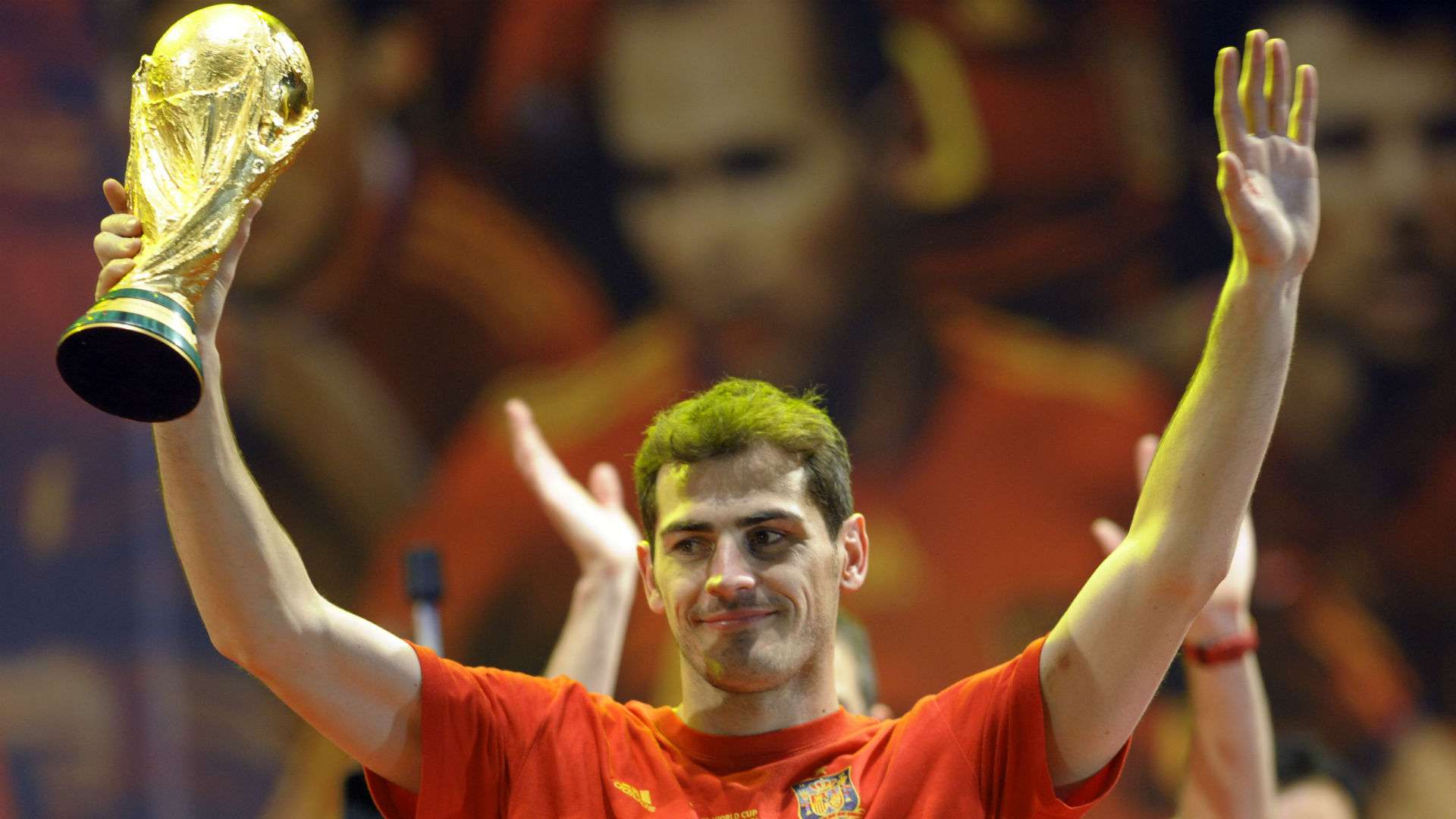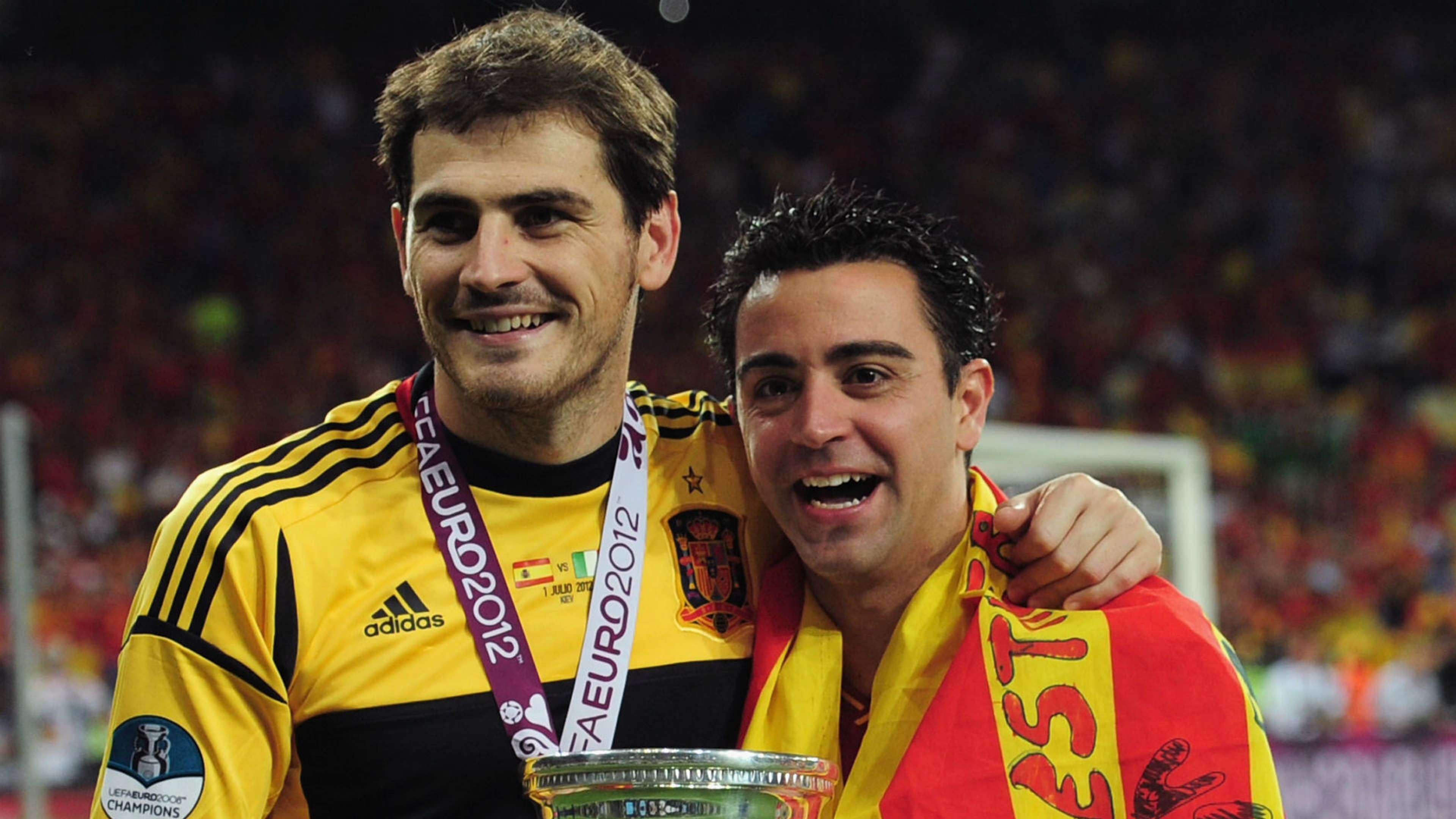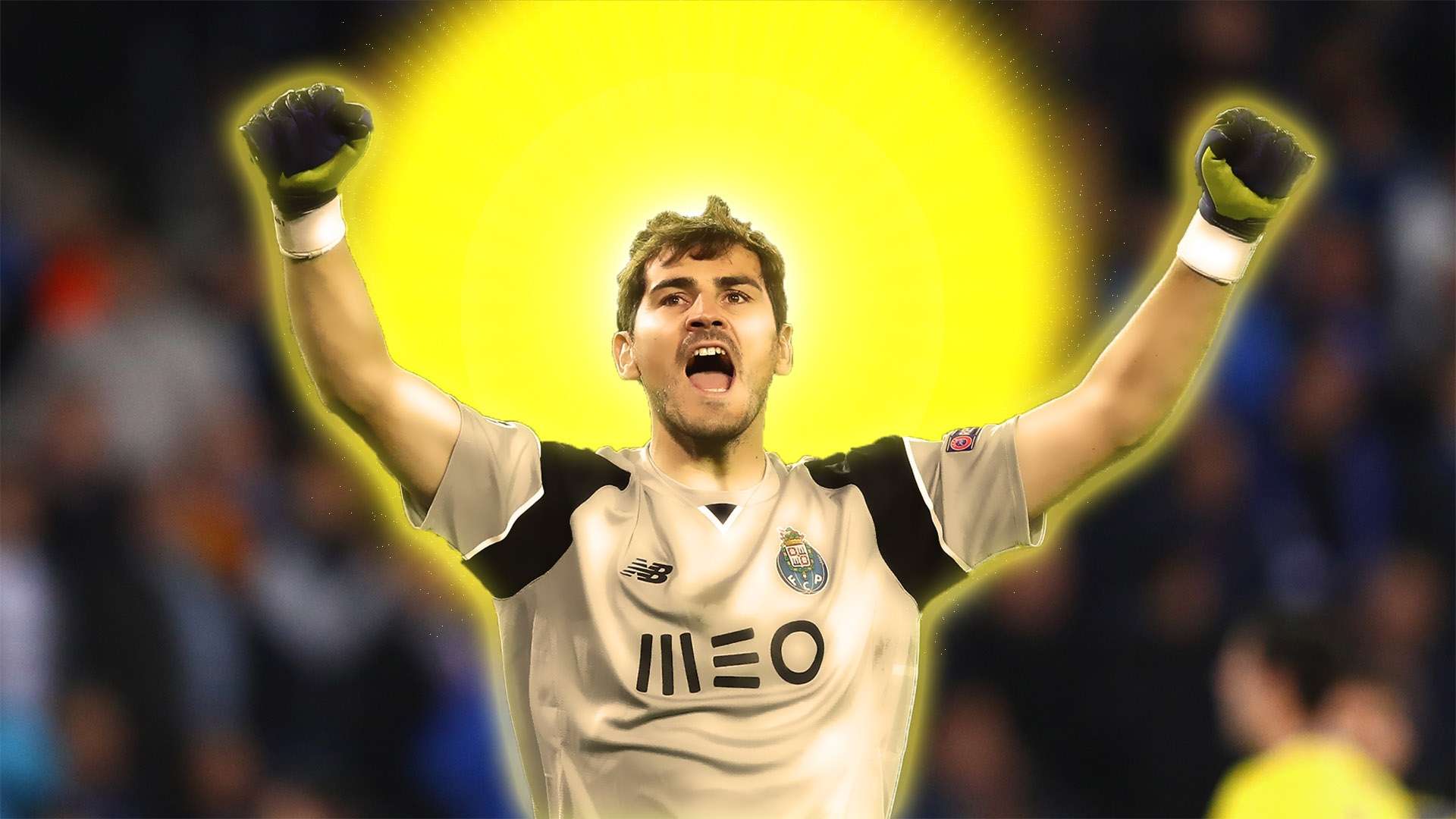A product of the club's youth academy, Casillas played 725 times for Los Blancos and became club captain, cementing his status as a club icon along the way.
He was also a central figure in the most successful period in Spain's history as La Roja won two European Championships in 2008 and 2012, as well as their first ever World Cup in 2010.
The shotstopper's stature is such that he is affectionately known as San Iker by fans of Madrid, Spain and now Porto, where he is concluding his career.
But what does the nickname mean and why do they call him that? Goal takes a look.
Why is Casillas called 'San Iker'?
San Iker is Spanish for 'Saint Iker', which gives you an idea of the high esteem in which Casillas is held.
The natural connotations of such a sobriquet are that the goalkeeper is a man of divine qualities, possessing the ability to perform miracles.
Indeed, Casillas was a precocious talent, breaking into the Real Madrid first team against the odds during the 1999-2000 season as an 18-year-old, usurping German goalkeeper Bodo Illgner as number one. He played in and won a Champions League final in that breakthrough campaign before adding his second title two years later.

As he continued to excel at the Santiago Bernabeu, it did not take long for the netminder to establish himself as Spain's first choice and he was the undisputed number one heading into the 2002 World Cup. His performances at that tournament marked the beginning of the age of San Iker as he saved three penalties against the Republic of Ireland to help send Spain into the quarter-finals.
Casillas' knack for making perfectly timed interventions in big games grew stronger as he matured and he truly lived up to the title of San Iker, particularly in the 2010 World Cup final against the Netherlands. His denial of Arjen Robben in the 62nd minute after the Dutch winger was released through on goal is often seen as one of the defining moments of his career. He conceded just two goals in the course of the tournament and won the Golden Glove for his contribution, the crowning glory of which was repelling Robben.
"When you win the Golden Glove and it's come on top of a team prize, then it's very special," Casillas told FIFA TV . "Winning an individual award when your team hasn't won leaves you with an empty feeling inside. But I was lucky in that we'd won the World Cup and I won best goalkeeper of the tournament. So it doubled the happiness for me."

While it played a part, it wasn't just Casillas' seemingly miraculous ability that earned him the nickname San Iker, but his demeanour too, which was serene under pressure. Indeed, his personality was a central component in healing the traditional divide that had held back Spain in the past and his friendship with Xavi Hernandez helped to foster cohesion within the ranks of La Roja.
Fittingly, when he left Real in 2015, Casillas demonstrated the kind of modesty that endeared him to fans, foes and friends alike. "I don’t want to be remembered as a good goalkeeper or a bad goalkeeper," he said. "I just want to be remembered as a good person, with my faults."
But, as Real Madrid and Spain fans know, there is a difference between good people and saints.
Iker Casillas honours

Casillas has enjoyed immense success during his career, winning national, continental and global honours.
You can see the trophies Casillas has won at club and international level below, as well as a selection of the individual awards he has received.
Club honours
Real Madrid
- La Liga: 2000-01, 2002-03, 2006-07, 2007-08, 2011-12
- Copa del Rey: 2010-11, 2013-14
- Supercopa de Espana: 2001, 2003, 2008, 2012
- Champions League: 1999-2000, 2001-02, 2013-14
- UEFA Super Cup: 2002, 2014
- Club World Cup: 2014
- Intercontinental Cup: 2002
Porto
- Primeira Liga: 2017-18
- Supertaca Candido de Oliveira: 2018
International honours
Spain
- World Cup: 2010
- European Championship: 2008, 2012
Individual honours
- Bravo award: 2000
- La Liga Best Goalkeeper: 2009, 2012
- Zamora Trophy: 2007-08
- Best European Goalkeeper: 2010
- World Cup Golden Glove: 2010
- FIFPro World XI: 2008, 2009, 2010, 2011, 2012
